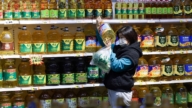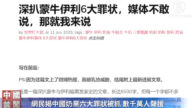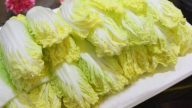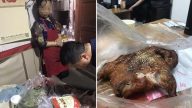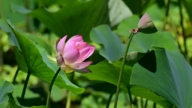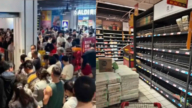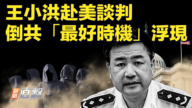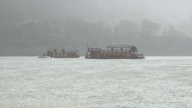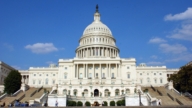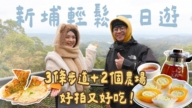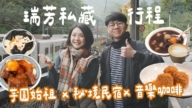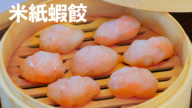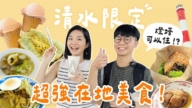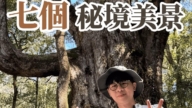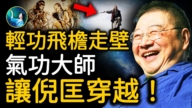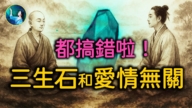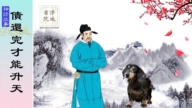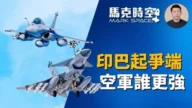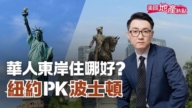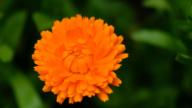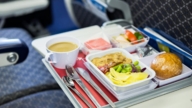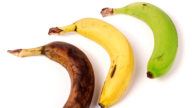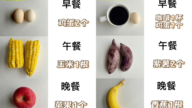【新唐人2015年02月09日讯】香港“限奶令”已经推出近两年,但非法携带奶粉过境的的问题不但没有得到解决,反而越发严重。香港法官吴蕙芳最近在审理一连串违反“限奶令”的案件时,感叹偷运婴幼儿配方奶粉的情况已经失控。吴蕙芳直言:国家出产的奶粉,连自己的国民都不敢吃,是一种国耻,让人感到悲哀。
近年来,大陆游客为买到安全、放心的商品,纷纷前往香港等地大量购物。这其中携带水货过境偷运商品的旅客就被俗称为“水客”。
《自由亚洲电台》报导,香港实行“限奶令”之后,大陆“水客”主要在罗湖、皇岗等海关被截获,所以大部分违反“限奶令”的案件,都交由香港粉岭和屯门两个法院审理。
5号香港粉岭裁判法院主任裁判官吴蕙芳,在集中审理24起违反“限奶令”的案件时表示,粉岭法院在2013年总共审理了2700宗此类案件,这一数据在2014年剧增到5000多宗。
吴蕙芳谈到,虽然去年法庭加大处罚力度,但情况并没有好转,现在“水客”偷运30公斤婴幼儿配方奶粉的情况极为普遍,情况已经失控。
吴蕙芳6号再度出庭审理23宗同类案件,她在庭上直言:国家出产的奶粉连自己的国民都不敢吃,是一种国耻,并为此感到悲哀。
香港立法会议员单仲偕:“几年前大家都知道‘结石宝宝’的问题。有一些‘结石宝宝’的父亲、母亲,他们向内地不同的部门去追究责任,直到原告成为被告。所以这真是内地人的悲哀。”
2008年中国大陆爆发轰动全球的“毒奶粉事件”。很多婴幼儿因为食用含有有毒化工原料三聚氰胺的奶粉,而患上肾结石等病症。事件涉及三鹿、伊利、蒙牛及光明等大陆知名奶制品厂商。当时各地因毒奶粉住院治疗的婴幼儿至少上万人。
但大陆官方竭力隐瞒毒奶粉实情、并对受害者进行打压。无奈之下北京居民赵连海作为一个“结石宝宝”的父亲,发起成立了维权联盟——“结石宝宝之家”。但之后赵连海被当局以“寻衅滋事罪”为名拘捕,被判刑两年半。
实际上毒奶粉也只是中国严重食品安全问题的冰山一角。
近年来中国大陆假货、有毒商品四处泛滥。毒奶粉、毒大米、地沟油、毒牙膏、毒豆芽、死猪肉、毒凤爪、毒鸡蛋、假烟假酒、假疫苗、毒玩具,还有皮鞋胶囊等名副其实的毒药,真是无所不毒,让人防不胜防。
除此之外,因为片面追求GDP增长造成的环境污染也极其严重:从土地、水源到人们呼吸的空气,都在日益恶化。
山东大学退休教授孙文广:“当局无视民众的环境、食品、包括空气在内。现在北方的很多城市,像我们所在的济南市,十大污染城市之一,都不敢出门。”
福建自由作家廖祖笙曾对海外《大纪元》新闻网表示,中共眼中只有钱,毫无道德可言。在中共体制和奴化教育之下,大陆老百姓深受毒害,道德下滑无以复加。因此,大陆毒食品泛滥也就不足为奇了。
大陆毒奶粉事件之后,越来越多的大陆人想办法从香港大量购买奶粉,造成香港本地出现奶粉紧缺状况。2013年3月1号,香港政府开始对离境人士所携带的奶粉数量进行限制:每人只允许携带数量不超过2罐、重量不超过1.8公斤的奶粉,违者将被罚款甚至监禁。
采访/易如 编辑/李谦 后制/萧宇
Hong Kong Judge: Home-Made Milk Powder Phobia is National Humiliation
Two years ago, Hong Kong issued a two-can export limit
on baby milk.
However, the problem of smuggling milk powder
into mainland China has gone unresolved.
Indeed, the problem has worsened.
Wu Huifang, a Hong Kong judge, commented on the issue
as she recently tried a number of the milk powder
export limit violation cases.
Wu believes it is the Chinese Communist Party’s (CCP)
national humiliation that its people dare not allow babies
to consume home-made milk powder,
and that it is a sorrowful fact.
In recent years, mainland tourists frequently visit Hong Kong
to purchase “safe food" in bulk.
Some of them secretly smuggle goods into the mainland.
These people are called “parallel traders."
A Radio Free Asia report said that after the export limit
of milk was implemented, most “parallel traders"
were intercepted at the Customs of Lo Wu Station
or Huanggang Port.
Consequently, most milk smuggling cases are tried
at corresponding district courts in Fanling or Tuen Mun.
On Feb. 5, Wu Huifang, a chief adjudicating officer
at Fanling Court, commented on the issue during the trial
of 24 violation cases of the two-can milk powder
export limit law.
Wu said her court tried about 2,700 such cases in 2013,
and the figure surged to over 5,000 in 2014.
Wu mentioned that the situation had not improved
although the court intensified punishment against violators.
Currently, it is very typical to see “parallel traders" crossing
the border with 30 kilos of smuggled baby milk powder.
The situation has gotten out of control, said Wu.
On Feb. 6, Wu again tried 23 cases of smuggled milk powder.
She directly commented during the trial that it is the CCP’s
national humiliation that Chinese people are afraid
of consuming home-made milk powder.
She felt sorrowful for the fact.
Sin Chung-kai, HK Legislative Council member, “We all know
the 2008 Chinese Milk Scandal in which infants died
from kidney stones.
Some parents of the baby victims struggled to call relevant
CCP departments to account until they were suppressed
by the authority.
We have to say, this is very saddening for mainland Chinese."
In 2008, mainland China drew global attention
for its home-made toxic milk incident.
Many infants suffered kidney stones or other diseases
after eating milk consisting of melamine,
a toxic industrial chemical.
The incident involved the most renowned milk producers
in China, including Sanlu, Yili, Mengniu and Guangming.
At least 10,000 infants had to receive hospitalization
treatment after consuming toxic milk.
In response, the CCP tried hard to conceal the truth
and even suppressed the victims’ families.
Zhao Lianhai, a Beijing resident and parent of kidney stone
baby, began the “Home for Kidney Stone Babies" website
to protect the rights of victims’ parents.
Zhao was later sentenced to 2.5 years in prison
by the CCP on charges of “disrupting social order."
The fact is toxic milk powder is only the tip of the iceberg
regarding China’s food safety problems.
Mainland China has seen widespread toxic food cases
in recent years.
There are toxic milk powder, toxic rice, gutter oil,
toxic toothpaste, toxic bean sprouts, pork from diseased
pigs, toxic chicken feet, toxic eggs, fake cigarettes and wine,
fake vaccines, toxic toys, and toxic capsules that
are poisonous rather than healing.
Anything can be poisonous and there is almost
no way to guard.
In addition, the CCP’s pursuit of GDP growth policy
has resulted in extremely serious pollution.
The quality of soil, water and breathing air
are deteriorating with each passing day.
Sun Wenguang, retired professor at Shandong University:
“The CCP does not care about the environment,
food and air quality.
In many northern Chinese cities, such as Jinan where I live
and which is one of China’s top ten most polluted cities,
people don’t even want to go out."
Liao Zusheng, a Fujian freelancer, told the Epoch Times that
the CCP’s eyes are on money only, and never on morality.
Under the CCP’s systematic brainwashing education,
Chinese people also suffered unprecedented moral decline.
In such a situation, it is not really surprising to see
ubiquitous toxic food in China, said Liao.
After the milk scandal broke out, more and more mainland
Chinese turned to Hong Kong to purchase milk powder.
This soon leads to milk shortage for local residents.
On March 1, 2013, HK government issued a law limiting
foreigners from bringing milk powder out of Hong Kong.
An individual is only allowed to bring back milk powder
products of up to 2 cans or 1.8 kilos.
Violators are subjected to fines or detention.
Interview/YiRu Edit/LiQian Post-Production/XiaoYu


